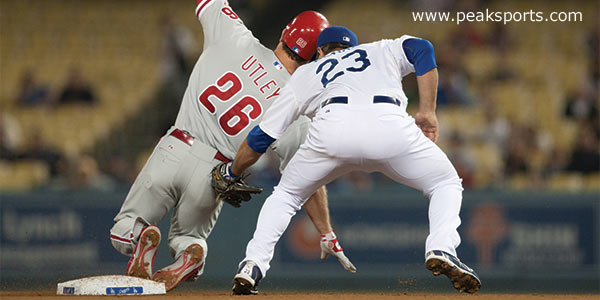
How do You React When the Unexpected Happens?
Do difficulties dissuade you from reaching your athletic goals or do they give you the motivation to discover new ways to keep the momentum moving forward?
It is said to “expect the unexpected,” but what is most important is to be prepared for the unexpected.
All athletes face adversity. Gymnasts will fall in major competitions, softball and baseball players will suffer injuries, soccer goalies will give up last-minute goals, and hockey players will be caught out of position.
These challenges are faced in every level of athletics, from high school to college, to professional leagues.
Being prepared for the unexpected takes resilience, confidence, and mental toughness. How can you prepare for the unexpected?
Preparing for the unexpected is something we hear discussed by athletes, coaches, and parents.
A coach who responded to one of our surveys expressed the difficulty his team is having dealing with adversity and other difficulties during the season.
“I need my athletes not to be frustrated when they fall short. To make them accept the fact that there will be times when they are going to struggle, but somehow they must maintain confidence in their abilities.”
Be Prepared for Anything
Coaches frequently say, “Expect the unexpected. Anything can happen in the heat of battle.” To be prepared, athletes need to have a plan or mental strategy that they can turn to when the unexpected strikes.
While you may provide guidance on adversity, you also need to teach athletes to be prepared mentally when adversity strikes.
For example, what is your team’s response if the top athlete on your team gets injured? All too frequently, the team becomes dejected and you can tell by their body language that they lose confidence.
You can sense that your team is lost and thrown off their game. Your athletes know that injuries are a part of the game, but are not mentally prepared to fight to achieve the team’s ultimate goal. A mental letdown will always lead to a physical letdown.
When adverse circumstances arise, you need to be confident in your abilities to strike back.
The Philadelphia Phillies are confronting this very challenge as they are faced with some tough circumstances fighting for a playoff berth as the 2020 season winds down. With 13 games remaining in the regular season, starting pitcher Jake Arrieta suffered a hamstring injury that will sideline him for the rest of the season.
After his injury, Arrieta spoke of the importance of mental toughness and how the team needs to pull together to overcome this unexpected turn of events.
ARRIETA: “It’s just another chapter in our story that we have to continue to write and play out the remainder of the season. Nobody said it was going to be easy, right? It seems like this is pretty much rock bottom for us after playing such great baseball for [an 11-game] stretch, going [10 of 11]. It just shows you how quickly this game can flip flop.“
Injuries and other tough circumstances will happen. When you are mentally prepared for the unexpected, you can change your mindset on adversity to focus on continuing to work towards your athletic goals.
Mental toughness and mental preparedness provide the boost needed to meet and overcome the unexpected.
How to be Mentally Prepared for the Unexpected
Talk to your athletes about how to handle adversity instead of giving them a game-time pep-talk.
Ask what mental toughness means to them and how mentally tough athletes would respond in challenging circumstances. Talk about what mental toughness looks like and how they can practice mental toughness.
Not expecting speed bumps, roadblocks and obstacles is unrealistic. You shouldn’t go through the season expecting the worst, but you need to be mentally flexible to handle the adversity when it unexpectedly pops up.
Related Sports Psychology Articles
- How to Cope With Unexpected Challenges
- How To Anticipate The Unexpected And Adjust
- Anticipation and Mental Preparation
*Subscribe to The Sports Psychology Podcast on iTunes
*Subscribe to The Sports Psychology Podcast on Spotify
Download a free sports psychology report to improve your mental game!
Learn more about our one-on-one mental game coaching.
The Fearless Athlete

For the last two decades, I’ve been working with athletes and helping them optimize their physical ability by teaching them the secrets of top performing athletes. Now, you too can learn how to regain that child-like fearless attitude.
Mental toughness is what separates the winner from the loser in any competition. Champion athletes train hard in practice, perform without fear in competition, and trust their skills in crunch-time.
The Fearless Athlete program is ideal for any athlete that wants to overcome fear of failure and uncover inhibiting perfectionistic traits; or for any coach or parent who wants to teach athletes to perform with trust and freedom in competition.
